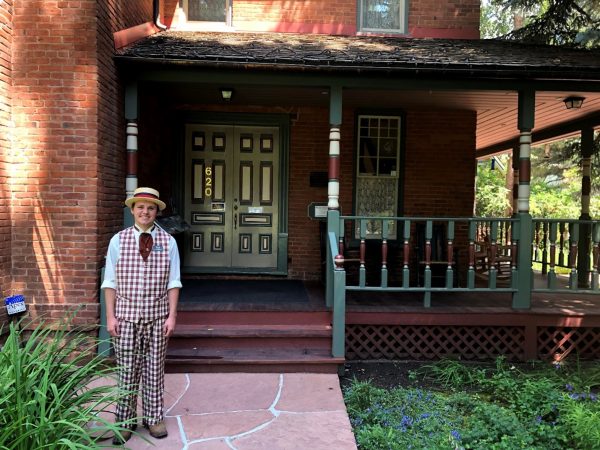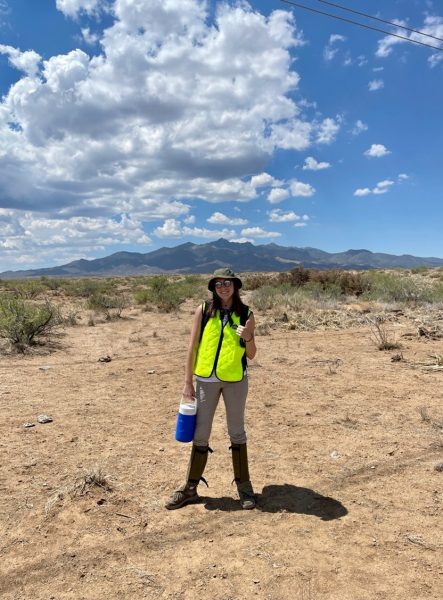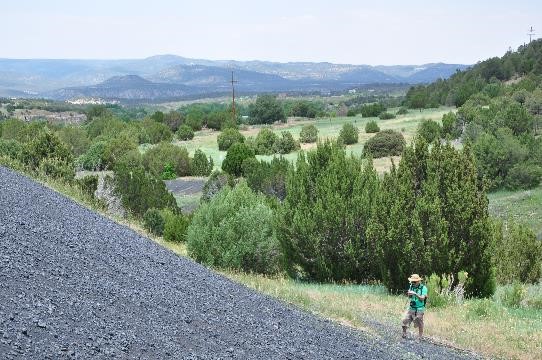Graduate Program
The Department of History at Colorado State University admits a select group of students each year for its Master of Arts program in History. Our program strengths include United States history, environmental history, cultural resource management & historic preservation, and general public history.
Program Overview
The Department of History at CSU offers a Master of Arts (MA) degree in History and is committed to providing a high-quality graduate education and inclusive learning atmosphere, and to building a diverse student population. In our program, students most commonly work with faculty who specialize in areas of United States history, environmental history, cultural resource management & historic preservation, and general public history. Graduate students in the program also work closely with each other on class projects, in internships, and on professional and service-learning projects.
We have a considerable concentration of established historians who study Environmental History and who work with colleagues in CSU’s Warner College of Natural Resources, the Office of Engagement and Extension, and other colleges, departments, and centers at CSU to create interdisciplinary research and scholarship.
Our specialization in cultural resource management & historic preservation is one of the oldest in Intermountain West, has a job placement rate of over 90%, and is nationally renowned. Graduate students in our program also have an unparalleled opportunity to apply for competitive paid internships and research positions in which they gain professional experience and network while completing their degrees. Such opportunities include a standing internship program with Pinyon Environmental, Inc.; projects through the Public and Environmental History Center; and grant-funded public and applied history projects with faculty members.

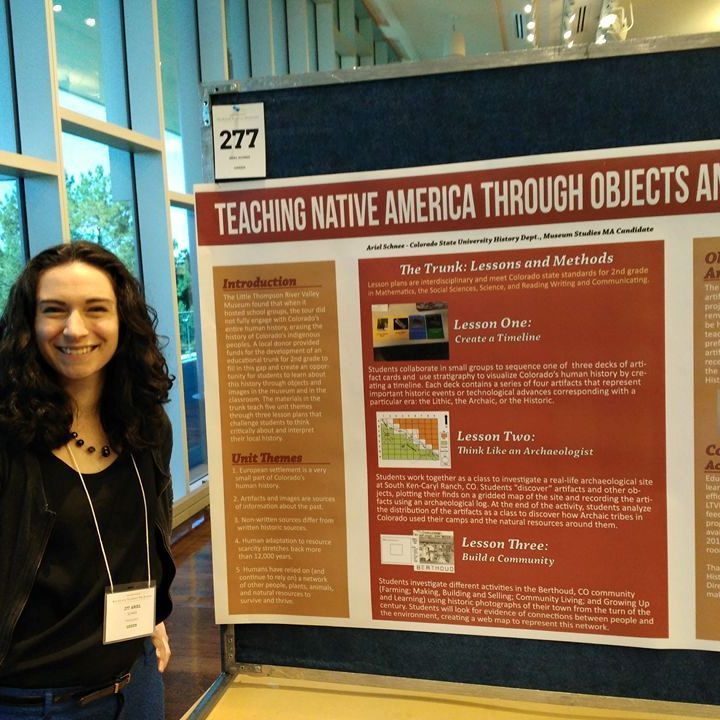
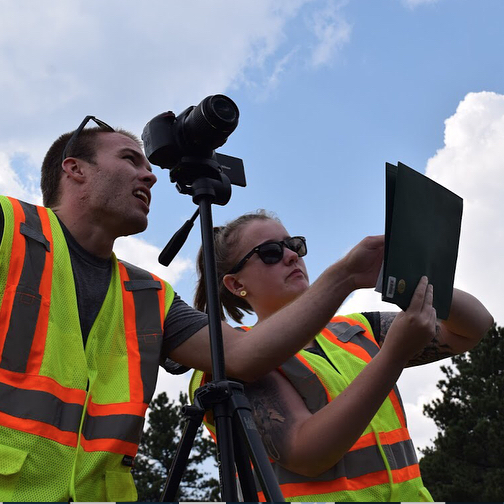

The Department of History is committed to inclusive team mentoring. We encourage prospective students to review our guidance documents on mentoring and to talk to individual faculty and current students.
Programs of Study
We have three pathways, or programs of study, to the MA in History: Liberal Arts specialization Plan A Thesis track (HIST-LBAZ), Liberal Arts specialization Plan B Non-Thesis track (HIST-LBAZ), and the Cultural Resource Management (CRM) & Historic Preservation specialization Plan B Non-Thesis specialization (HIST-CMHZ).
LIBERAL ARTS SPECIALIZATION
Students studying a geographical, chronological, or thematic area that is supported by department faculty and CSU resources should apply to either the Liberal Arts specialization on the Plan A Thesis track or Plan B Non-Thesis track. Students pursuing this option can write a multi-chapter work of original research on the Plan A Thesis track or develop additional content knowledge and skills through more coursework on the Plan B Non-Thesis track.
CRM & HISTORIC PRESERVATION SPECIALIZATION
Cultural Resource Management and Historic Preservation is a broad interdisciplinary field that focuses on the identification, documentation, and interpretation of historic built environments, historic landscapes, and heritage resources (both tangible and intangible.) Cultural resource managers typically work for consulting firms, city and state governments, federal agencies, and non-profit heritage organizations. Historical training is essential for cultural resource managers to evaluate significance and create meaningful interpretations.
The CRM/Historic Preservation specialization is our most structured and specific track within the History MA program. It is designed to place students in historic preservation jobs within the federal government, state governments, and with nonprofits. Students interested in pursuing a career in the United States in CRM & Historic Preservation should apply to the concentration.
GENERAL PUBLIC HISTORY
Public History is defined by the National Council on Public History, as “the many and diverse ways in which history is put to work in the world.” Our graduate program offers general training in public history through either of the Liberal Arts program plans, both the Plan A Thesis track and the Plan B Non-Thesis track. Courses in this area at the graduate level include a reading seminar in Public History, a research seminar in Public History, a Digital History course, and the opportunity to complete a public history internship or practicum.
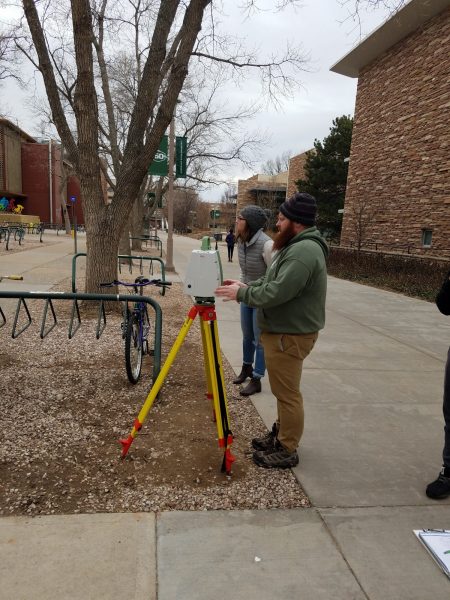
Sample Course Schedules
Your schedule of courses will be dependent upon the year you enter the program and your particular interests in conversation with your primary advisor. We have provided an overview of the timing of current course offerings and the expression of those offerings across the Liberal Arts Plan A (Thesis), Liberal Arts Plan B (Non-Thesis), and CRM/Historic Preservation Plan B (Non-Thesis) tracks.
SUPPORTING DOCUMENTS
Statement of Purpose
Your statement of purpose, sometimes called a personal statement, should clearly address why the MA in History program at CSU best fits your educational and career goals. Be sure to include the following information in your statement:
- State the program of study (Plan A Thesis track, Plan B Non-Thesis track, or CRM & Historic Preservation) you are interested in pursuing.
- Indicate which geographical (United States, Europe, Latin America, Asia, World, etc.), temporal (U.S. to/since 1877, Europe to/since 1850, World to/since 1500, etc.), and/or thematic areas (public history, women’s and gender history, environmental history, religious history, etc.) within history you intend to study. The History department specializes in the study of public history and environmental history, with a focus on US history. The department has limited faculty expertise in African history, and rarely accepts students interested in European, Latin American, and Asian histories.
- Identify the faculty whose teaching and research align with yours, reach out to those faculty, and confirm that an appropriate faculty member is willing to serve as your primary advisor and mentor. Explain the connection between your interests and that of the faculty member(s) with whom you desire to work.
- Explain specifically how you see an MA in History from CSU advancing your professional goals. Why is this graduate program the right place for you to fulfill your educational and career goals? We encourage applicants to discuss their previous educational and work experiences as examples of their interests.
- Articulate which centers and activities at CSU you are interested in participating in and what scholarly organizations you are a part of or would like to become involved with, such as the Public and Environmental History Center and the Western Historical Quarterly.
We do not admit students to our program whose interests do not align with the strengths of our graduate faculty and program.
Three Letters of Recommendation
Letters should come from people familiar with your academic and professional work. At least two references must come from academic faculty, preferably historians.
Academic Writing Sample
The writing sample should be an argument-driven historical interpretation, preferably one that uses some combination of archival research and primary sources, existing historical interpretations (secondary sources), and engages some historiography (how other historians have approached the subject). It should feature your best and most polished academic writing and/or your best and most polished public-facing work. It should be free of grammatical, spelling, and punctuation errors and include source citations and a bibliography.
A Curriculum Vitae
Your C.V. should include your education, relevant work experience, internships, awards, honors, publications, presentations, and other relevant information.
Official Transcripts
Contact your previous institution(s) to request they submit your official transcript to Colorado State University (use CSU institution code 4075).
Meeting the minimum CSU or department standards does not entitle an applicant to admission. Meeting such standards only ensures consideration of the application. Since CSU cannot accommodate all who meet the minimum standards, it reserves the right to select individuals for admission on the basis of merit in such a way as to promote the best interests of CSU and the society as a whole and to maximize the potential for individual accomplishment.
Public and Environmental History
Center Research Projects
The Public and Environmental History Center (PEHC), formerly the Public Lands History Center (PLHC), is an award-winning research center that is administratively attached to the CSU History Department and run by history faculty. The PEHC gets students out of the classroom and into the field to get the experience and connections they need for fulfilling careers after graduation, completing projects for federal agencies, such as the NPS, for state departments such as Colorado Parks and Wildlife, for city governments, and for non-profit organizations.
PEHC faculty are committed to doing community history and historic preservation through an alternative model for collaborative research and engagement grounded in place-based history and the environment, shared authority and reciprocity. Recovering histories of difference in partnership with public agencies, local historical societies, and students promotes shared community values, justice and democracy, and public dialogue. The PEHC upholds its mission in every component of its work, whether we are operating in the field or in the classroom.
Funding
GRADUATE TEACHING ASSISTANTSHIPS
The History Department provides funding for graduate students on a competitive basis through Graduate Teaching Assistantships (GTAs.) In a typical year, the department can offer 9-11 incoming students GTA funding. GTAs receive a full tuition waiver for four semesters, a monthly stipend during the 9-month school year, and health care benefits. All applicants are automatically considered for a GTA position and should consider the responsibilities described below when preparing their application materials. The writing sample is particularly important because it signals proficiency in the content and mechanics of historical writing.
For more information on GTA benefits, visit the GTA Finances page.
In order to receive the financial benefits of the GTA, students are assigned to work with professors teaching 100-level History classes in the Category 3D. Historical Perspectives of the All-University Core Curriculum (AUCC). A GTA attends class, holds regular office hours to meet with students, answers students’ questions during office hours and via email, and grades assignments. Most of the grading GTAs do is in the form of written assignments such as essays that feature historical interpretations and meet the gtPathways guidelines for the AUCC curriculum. GTAs may be invited to lead discussions and/or deliver a lecture to the class.
GTAs typically grade for a different instructor each semester, so they gain a broad historical overview and insight into different teaching methods.
SCHOLARSHIPS AND AWARDS
The history department offers scholarships and awards for graduate students. Students can also apply for scholarships through the Office of Financial Aid.
Other Funding
In partnership with Pinyon Environmental, Inc., a paid internship in CRM & Historic Preservation is offered each year. Additionally, faculty often hire graduate students to work on contracted or grant-funded public and applied history projects, or to work on individual scholarly projects.
STEPS ONCE ADMITTED
Once admitted to the MA in History program, all new graduate students should familiarize themselves with the university’s various requirements for new students. Below are the university entities that facilitate graduate education and links to important information graduate students need to complete their program.
- The Graduate School’s Graduate Handbook provides information to new graduate students about Steps Once Admitted and New Graduate Student Orientation. The Graduate School also maintains the Policies and Procedures of graduate programs at the university, important Forms and Deadline Dates, and Advisor and Committee Requirements.
- The Office of Financial Aid provides guidance on Residency Classification in Colorado [links to https://financialaid.colostate.edu/residency/]. All graduate students who are not already residents, except those listed as exceptions and those who are part of the Western Regional Graduate Program need to apply for residency.
- The Institute for Learning and Teaching (TILT) provides First-Time Graduate Teaching Assistant Training to onboard GTAs to the protocols of The gtPathways Writing Integration Initiative they support.
- The Department of History Graduate Program Policies, which are set by the Graduate Studies Committee (GSC), the pertinent program check sheet (see Programs of Study), and the GTA Policy provide guidance for MA program requirements. The GSC chair serves as the point of contact for the GSC.
- The graduate student’s primary advisor serves as the main point of contact throughout their program per the Mentor Relationship Guide. The primary advisor provides specific guidance on program planning, course registration, committee composition, and completion of degree requirements outside of coursework. Primary advisors and committee members are selected from the Graduate Faculty.
Current Graduate Students
-

Mireya Blush
- Graduate Teaching Assistant
-

Paetyn Burrell
- Graduate Teaching Assistant
-

Courtney Cohen
- Graduate Student Teaching Assistant
-

Tracy Flett
- Graduate Student Teaching Assistant
-

Oscar Godinez-Avila
- Graduate Student and Teaching Assistant
-

Zachary Guiliano
- Dan Tyler Graduate Editorial Fellow, Western Historical Quarterly
- Graduate Research Assistant
-

Kat Haddad
- Graduate Teaching Assistant
-
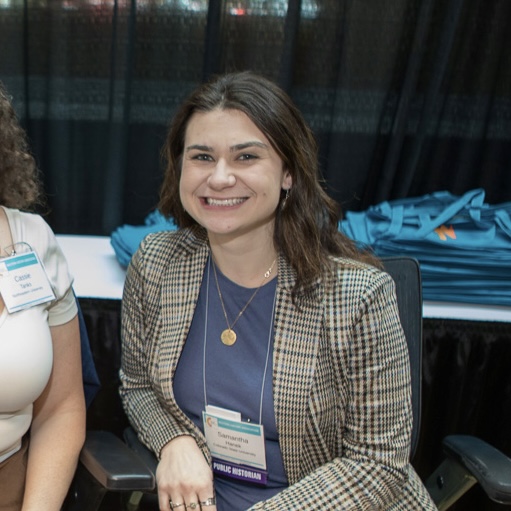
Samantha Hanek
- Graduate Teaching Assistant
-

Anthony Kargoll
- Graduate Teaching Assistant
-

Amy McClain
- Graduate Teaching Assistant
-

Isabella Narducci
- Graduate Teaching Assistant
-

Sean Nelson
- Graduate Teaching Assistant
-

Morgan Peters
- Vice President of HGSA
- Graduate Teaching Assistant
-

Devon Rebelez
- Graduate Student Teaching Assistant
- History Graduate Student Association President
-

James Relton
- Graduate Teaching Assistant
-

Claire Schlick
- Graduate Student Teaching Assistant
-

Evan Stackpole
- Graduate Teaching Assistant
-

Jake Valerio-Garsow
- Graduate Teaching Assistant
-

Annie Watterson
- Graduate Teaching Assistant
-

Sheridan Wells
- Graduate Teaching Assistant
-

Josephine Wettstaed
- Graduate Teaching Assistant
Internships and Practicum
All students studying Public History, regardless of their official program of study, will complete at least one internship or practicum. Both internships and practicums are professionalizing, work-oriented experiences meant to help students gain practical experience and build a professional network. Students must adhere to the Standards and Guidelines for Student Internships.

EXAMPLES OF STUDENT INTERNSHIPS
Michael Webster (Aspen Historical Society, 2021)
In the summer of 2021, I had a once-in-a-lifetime opportunity to work as an interpretive intern with the Aspen Historical Society. Working with AHS over the summer enabled me to serve within several public-facing outlets including, guiding tours, working within the museum, and providing information to visitors of the multiple silver-mining ghost towns surrounding Aspen. […]
Paige Rooney (Pinyon Environmental, Inc., 2021)
My internship with Pinyon Environmental, Inc. began in January 2021, but during the summer was when I dove deep into the world of cultural resource management and consulting. When I told people that I work for an environmental consulting company, they often asked how my degree in history was relevant to the type of work […]
Margaret Gentry (Public Lands History Center Internship, 2021)
Quitobaquito Springs in Organ Pipe Cactus National Monument has been a place of significance for many communities over the centuries, especially the Hia C’ed O’odham, a tribe without federal recognition who share a reservation with the Tohono O’odham. There are three groups that comprise the O’odham people, the Tohono O’odham, the Akimel O’odham (also known […]
Shaun Rose (Public Lands History Center Internship, 2021)
My name is Shaun Rose, and my graduate internship was completed with CSU’s Public Lands History Center (PLHC) under on a contract with Colorado Parks and Wildlife (CPW) to deliver a cultural resource stewardship chapter for land managers at Fishers Peak State Park near Trinidad, Colorado. My role was graduate research assistant, my faculty advisor […]
Alumni Statements and Achievements
The CSU History Department consistently places graduates in work at consulting firms; federal, state, and local government; community and non-profit organizations; museums and heritage organizations; and in some of the nation’s most competitive PhD programs.
“What takes the master's program to the next level is the practical experience it provides. Courses are built around real-world scenarios, and class projects yield tangible results that can be a perfect springboard into a work portfolio. Working for the on-campus Public and Environmental History Center (PEHC) also gave me an opportunity to hone my history skills as a student and an emerging professional. The PEHC also provided tons of opportunities to travel to amazing public lands destinations! I was hired right out of grad school for a cultural resource management position, and the education and experience I received at CSU has made a world of difference in setting me up for success.” Poppie Gullett graduated 2018, now at the National Parks Service.

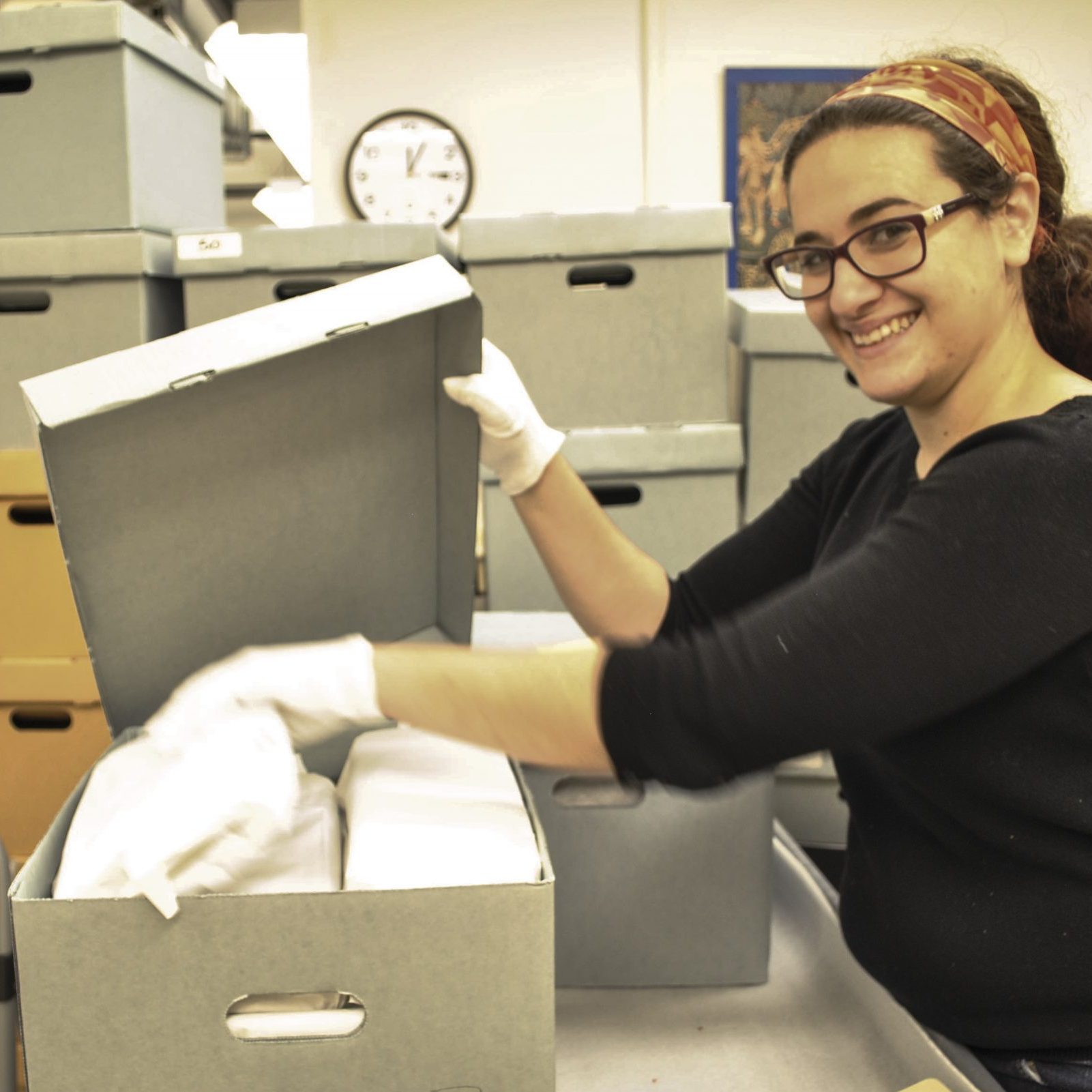
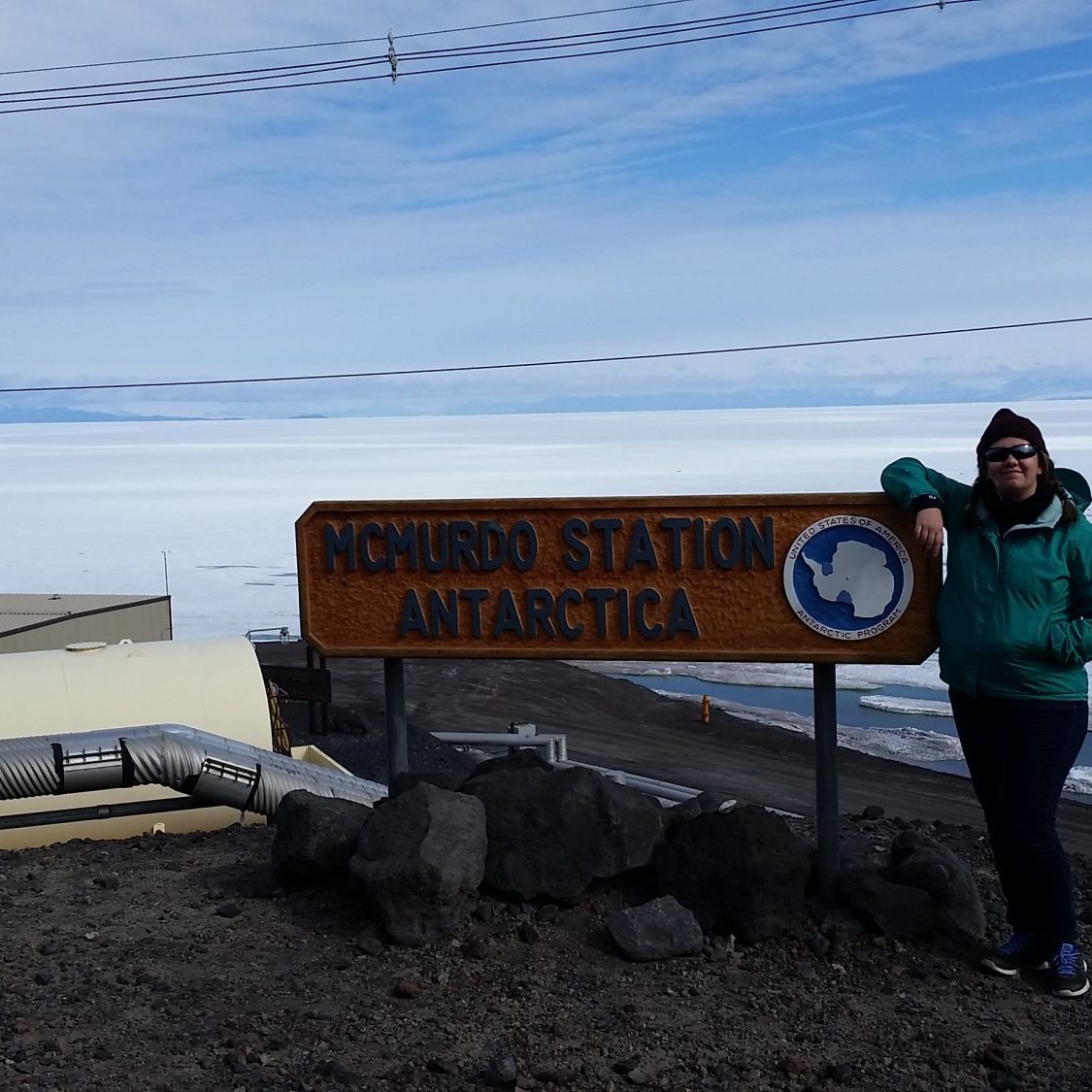

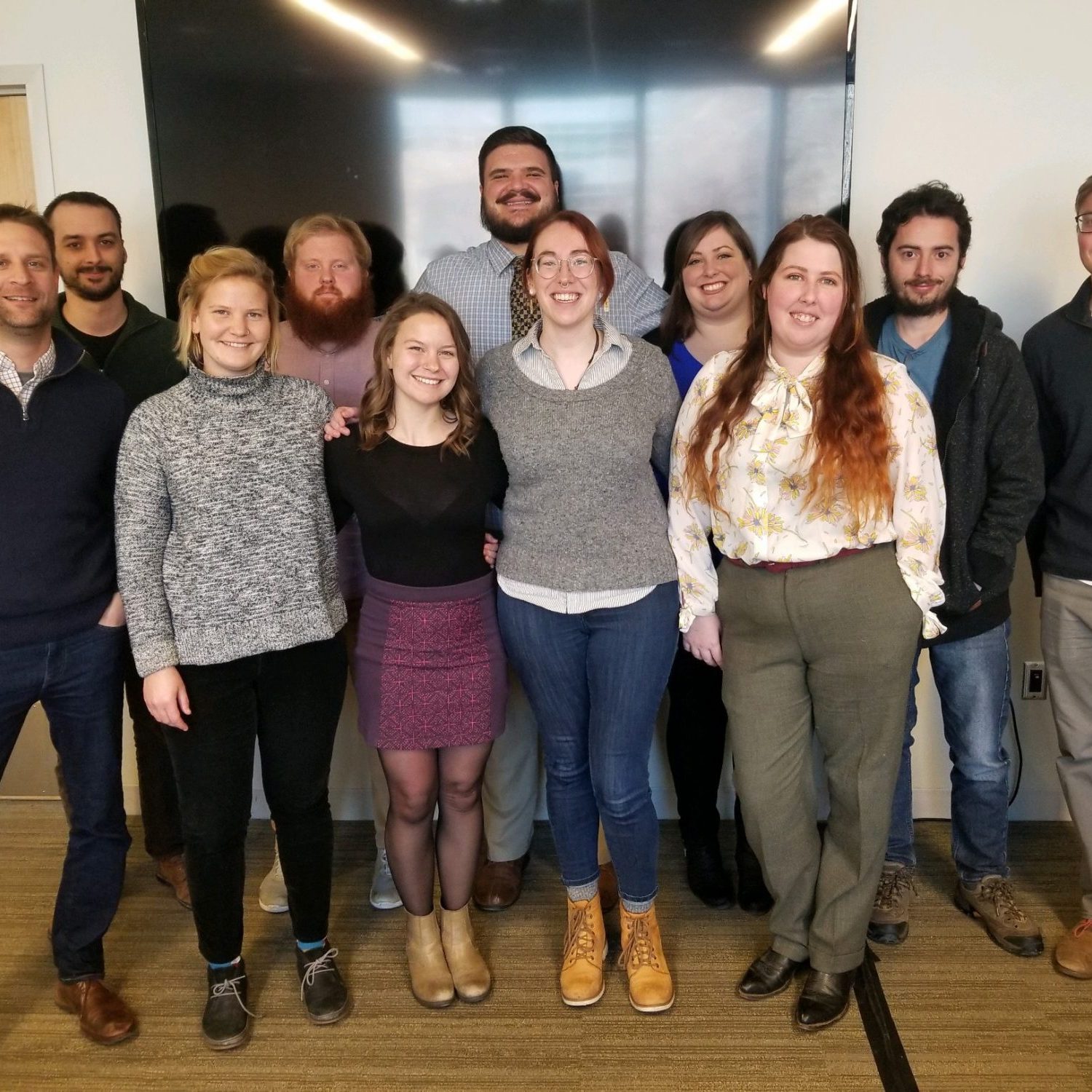
“While the academic program lays the foundational skills for any good historian - research, critical thinking, and writing - the professors also encourage and create opportunities for students to apply those skills. As a student, I gained experience in conducting oral histories, archival management, research, and working within art and history museums. In turn, my time at CSU allowed me to graduate with not only a MA in history, but a much fuller resume. I believe it is the culmination of the academic and real world training that I received at CSU that has opened the door to many professional opportunities.” Naomi Geriakos graduated 2014, now the Curator of Collections at Heritage Village in Pinellas County.
A FEW ALUMNI HIGHLIGHTS
Hailey Brazier (MA 2013) completed the PhD program at the Univ. of Oregon. Her dissertation research is in marine environmental history -- a history of how North Americans began to discover, conceptualize, and install technologies on the Pacific seafloor. Hailey was awarded a National Science Foundation dissertation grant and research travel funding from the Smithsonian.
Jake Swisher (MA 2020) was accepted into the PhD program in history at Notre Dame University.
Craig Somers (MA 2020) accepted a temporary position with the prestigious National Council for Preservation Education (NCPE), working with a NPS historic landscape specialists in Seattle. He helped produce video training modules for stewardship and preservation of cultural landscapes.
Dillon Maxwell (MA 2019) has worked both for the U.S. Forest Service and for CSU’s Center for Environmental Management of Military Lands (CEMML).
Maren Bzdek (MA 2015) is now a senior historic preservation planner for the city of Fort Collins. Her research played a key role in NASA’s restoration of the Johnson Space Center’s Apollo Mission Control Center.
MA graduate Jason O’Brien (2014) works for the Colorado State Historic Preservation Office on the Preservation Planning Team. Jason’s old position as Section 106 coordinator has been filled by another of our grads, Mitchell Schaefer (MA 2015).
